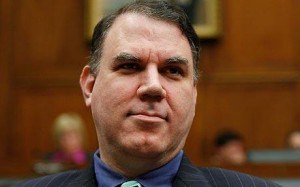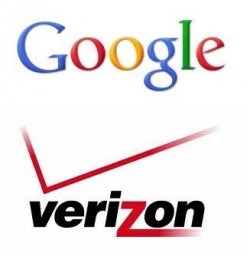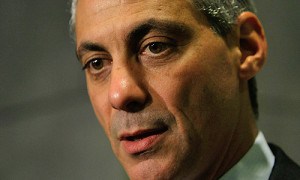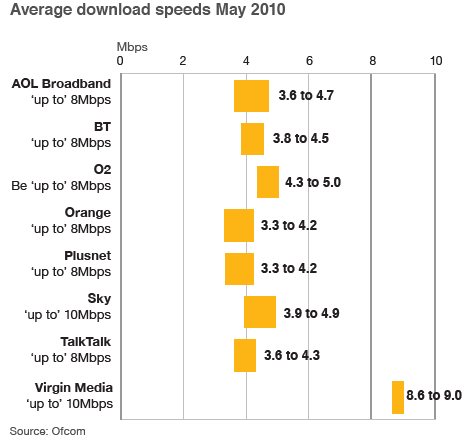
Phillip Dampier to Chairman Genachowski - Don't Be Verizon's Sucker
Julius Genachowski was played.
The chairman of the Federal Communications Commission hopefully just learned a valuable lesson about the corporations he’s dealing with. Big telecom companies will be your friend and working partner until they get close enough to stick you with their knives.
Genachowski got it right in the back, betrayed by the companies he shepherded into secret backroom talks, ostensibly to find a non-regulatory solution to Net Neutrality. While talks were underway, a few major players were quietly stalling for time to construct their own “private agreement” on Net Neutrality, threatening to up end the FCC’s Net Neutrality agenda into the toilet. The rest were never really interested in anything less than total capitulation on the concept of Net Neutrality (I’m talking to you, AT&T).
And the merry-go-round goes round and round….
The FCC chairman was outmaneuvered from day one, even as he was willing to ignore his biggest supporters who believed he was honest about an open, pro-consumer FCC.
Stop the Cap! reader Dave noted the secret backroom talks between the bully boys and the FCC chairman’s chief of staff Ed Lazarus had collapsed late last week. Extraordinary pressure from ordinary Americans helped torpedo those talks, as did the realization some of the participants were dealing behind the backs of their hosts.
Now that Verizon and Google have accomplished their Judas moment, the chairman of the FCC is just a tad angry in the papers:
“Any deal that doesn’t preserve the freedom and openness of the internet for consumers and entrepreneurs will be unacceptable,” Genachowski said at a recent press conference.
Some of Genachowski’s allies at the FCC hinted they were hardly surprised at the developments.
Commissioner Michael J. Copps has been around long enough to know better. He was skeptical negotiations would deliver more than lip service and he was right. With today’s announcement of a partnership on policy between Google and Verizon, Copps remained unimpressed, and issued a terse reaction:
“Some will claim this announcement moves the discussion forward. That’s one of its many problems. It is time to move a decision forward—a decision to reassert FCC authority over broadband telecommunications, to guarantee an open Internet now and forever, and to put the interests of consumers in front of the interests of giant corporations.”
Maybe it’s time for Chairman Genachowski to listen more to fellow commissioners like Mr. Copps and less time trying to negotiate with Verizon and AT&T.
It’s near impossible to find a consumer group not on big telecom’s payroll that likes any of these recent developments. Their consistent message — stop trusting big corporations with America’s Internet future. Do your job, stand up for Net Neutrality, and don’t cave in.
 Public Knowledge: Google Sold You Out
Public Knowledge: Google Sold You Out
Since late last year, we’ve been pushing the Federal Communications Commission (FCC) to place its authority to protect broadband consumers on firm legal ground. But faced with pressure from the largest cable and telephone companies, the agency has failed to act. Who is filling the void left by the FCC? Some of the world’s largest corporations.
Late last week, news broke that a traffic management agreement had been reached between Google and Verizon. This agreement would, among other things, allow Verizon to prioritize applications and content at whim over its mobile broadband network. In the absence of clear FCC authority, we can expect to see more deals like this in the near term. The largest telephone and cable companies and the largest web companies will carve up the Internet as they see fit, deciding who gets access to the Internet’s fast lane while the rest of us are stuck in the slow lane.
We’ve reached a critical crossroads—the time for FCC action is NOW. Private negotiations with industry players have failed. Public concern has reached a fever pitch. And some of the largest corporations on the web are lining up to put an end to the open Internet as we know it. The course of action couldn’t be more clear: the FCC needs to do the right thing and protect broadband users.
Free Press: Google – Don’t Be Evil
“Google and Verizon can try all they want to disguise this deal as a reasonable path forward, but the simple fact is this framework, if embraced by Congress and the Federal Communications Commission, would transform the free and open Internet into a closed platform like cable television. This is much worse than a business arrangement between two companies. It’s a signed-sealed-and-delivered policy framework with giant loopholes that blesses the carving up of the Internet for a few deep-pocketed Internet companies and carriers.
 “If codified, this arrangement will lead to toll booths on the information superhighway. It will lead to outright blocking of applications and content on increasingly popular wireless platforms. It would give companies like Verizon, Comcast and AT&T the right to decide which content will move fast and which should be slowed down. And it will destroy the open Internet as a platform for small business innovation and job creation, cementing companies’, like Google’s, dominant market power online.
“If codified, this arrangement will lead to toll booths on the information superhighway. It will lead to outright blocking of applications and content on increasingly popular wireless platforms. It would give companies like Verizon, Comcast and AT&T the right to decide which content will move fast and which should be slowed down. And it will destroy the open Internet as a platform for small business innovation and job creation, cementing companies’, like Google’s, dominant market power online.
“Still worse, this deal proposes to keep the FCC from making rules at all. Instead of an even playing field for everyone, it proposes taking up complaints on a case-by-case basis, or even leaving it up to third-party industry groups to decide what the rules should be. The only good news is that neither of these companies is actually in charge of writing the rules that govern the future of the Internet. That is supposed to be the job of our leaders in Washington.
“Congress and the FCC should reject Verizon and Google’s plans to carve up the Internet for the private benefit of deep-pocketed special interests, and move forward with policies that preserve the open Internet for all. This begins with the FCC reasserting its authority over broadband to ensure it can protect the open Internet and promote universal access to affordable, world-class quality broadband.
“The Internet is one of our nation’s most important resources, and policymakers everywhere should recognize that the future of our innovation economy is far too important to be decided by a backroom deal between industry giants.” — Free Press Political Adviser Joel Kelsey (See more here.)
Newspapers Say ‘Enough is Enough’
The San Francisco Chronicle
[…]Public interest and consumer groups didn’t feel like they had much of a say in the commission’s discussions, and they surely won’t feel like they had much of a say in whatever proposal Google and Verizon bring to the table. This is a huge problem – the future of the Internet belongs to the public, not just a few companies.
The ideal solution would be for Congress to step in and provide a framework for net neutrality – preferably one that keeps the public interest at heart, not the demands of dominant Internet companies and carriers.
That’s what the commission would prefer. It’s considering getting around the breakdown in negotiations by reclassifying broadband under a more heavily regulated part of telecommunications law, but the large cable and telephone companies will almost certainly sue. Congressional action would prevent this ugly scenario and its uncertain outcome.
And any proposal that Google and Verizon come up with will have to be approved by Congress. It would certainly serve the public interest better if Congress gathered input from more than just two companies and created a proposal of its own.
Unfortunately, Congress hasn’t shown much appetite for net neutrality legislation in the past, and we’re not optimistic about the near-term future. So it’s time for the commission to do the right thing and reclassify broadband.
Yes, that will mean lawsuits. It will mean that net neutrality has a precarious future. But it has a precarious future right now, and the public can’t afford to wait.
The Los Angeles Times
[…]Genachowski is right about the need for enforceable rules that prevent broadband providers from blocking or slowing access to websites and services they don’t favor. So far there have been only a few such incidents on DSL and cable-modem networks. But Internet service providers are itching to create a toll lane to deliver content and services from companies that have the resources to pay for better access to consumers. If that toll lane crowds out the free and open Internet that’s been a breeding ground for innovation and creativity, the whole economy will suffer.
[…]A major problem for the commission is that its authority to adopt such rules isn’t clear. Genachowski had hoped that the talks with Internet service providers and Web companies would yield a consensus on a bill Congress could quickly pass to grant the FCC clear but limited authority over broadband access. The breakdown of those talks complicates matters, and suggests that Genachowski may have to rethink his plan to enforce Net neutrality by bringing 21st century broadband providers under rules originally designed for 20th century telephone services. Whatever route it takes, though, the commission should move now.
[flv width=”480″ height=”380″]http://www.phillipdampier.com/video/Young Turks – Google Verizon Killing Net Neutrality 8-9-10.flv[/flv]
Cenk Uygur of The Young Turks show explains the implications of Google & Verizon’s deal for both progressives and conservatives if big corporations get to take control of America’s Internet. (6 minutes)
 The firebrand Rep. Alan Grayson (D-Florida), normally a plain-spoken kind of guy, has managed to tie himself into a human pretzel over the issue of Net Neutrality. In less than a week, he’s adopted every side of the issue as his own.
The firebrand Rep. Alan Grayson (D-Florida), normally a plain-spoken kind of guy, has managed to tie himself into a human pretzel over the issue of Net Neutrality. In less than a week, he’s adopted every side of the issue as his own.

 Subscribe
Subscribe









